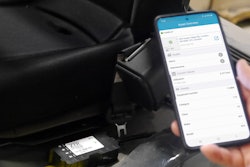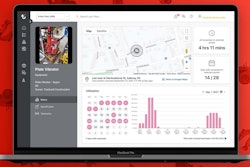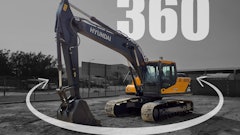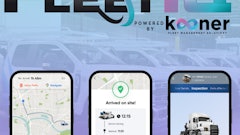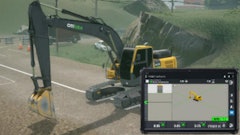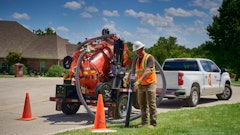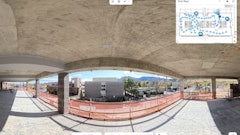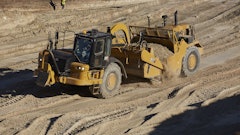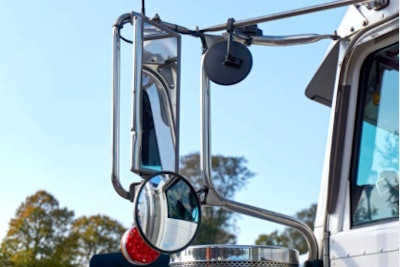
Editor’s Note: The following article is brought to you by clearpathGPS in partnership with ForConstructionPros.com.
GPS fleet tracking has been a trusted solution in the construction industry for several years because of its ability to help with common operational issues such as increasing driver safety, improving vehicle maintenance, and protecting against theft. But what many businesses don’t realize—even some that use GPS tracking—is that this technology has other advantages that can safeguard against operational blind spots, and even improve the business’s bottom line.
As a vendor to hundreds of construction firms, from GCs to every type of subcontractor, we’ve seen firsthand how specific types of blind spots can cause serious problems for businesses like yours. We’ll review three of them below, and explain how GPS fleet tracking can help with each.
1. Asset utilization
We’ve found that construction firms face a number of logistical challenges in effectively managing their assets. With crews scattered geographically, working on numerous job sites each day, it’s difficult to know exactly where a specific forklift, excavator, or other piece of equipment is at any moment. Crews move the company’s yellow goods from site to site all the time. Or, just as common, a crew hoards one of your bulldozers, leaving it idle at their site—and inaccessible to other crews.
If this sounds familiar, then it goes without saying that your company might be underutilizing or overutilizing the expensive equipment you’ve bought or leased. Worse, these blind spots could be hurting your operations in several ways. For example:
- You could be undermining performance on certain jobs—while crews wait for a machine that’s sitting unused on another job site.
- You might be needlessly spending money duplicating equipment that you already have but aren’t fully utilizing (because unsure don’t know where it is).
- You risk over utilizing certain equipment, creating more downtime, and even shortening its useful life, (or incurring more maintenance costs) because you’re unaware that similar machines are sitting idle on other sites.
With a GPS tracking system monitoring the whereabouts of your vehicles and heavy equipment, you could more efficiently locate and move vehicles and assets to the jobs where they’re needed most urgently.
That’s exactly how Arroyo Seco Construction, an eight-year customer of ClearPathGPS, uses its GPS trackers to improve operations. As President Adam Graham puts it: “I’m able to see all my job sites at once and know exactly who is where and with what equipment. We’ve been able to cut downtime significantly.”
Imagine a business renting three Bobcat Excavators, each generating $3,000 per month in revenue. If GPS tracking could help that company improve the utilization of each asset by 10%, that alone could increase the business’s ROI on those Bobcats by more than $10,000 a year.
2. Project Estimation
Another common challenge construction companies face is that the blind spots they have about their field operations make it difficult to know their true costs to complete specific types of jobs. And this, of course, makes it difficult to quote new jobs accurately.
You need to be able to quote new jobs accurately. Estimate high, and you could lose the project to a competitor. Or worse: go too low, and you could find yourself stuck with an unprofitable job. The key to ensuring your estimates are accurate, and that they lead to jobs that are profitable, is having key data such as:
- Your crews’ average time on-site at similar jobs, both by the day and overall.
- Machinery and other assets needed for similar jobs (and their costs to own or rent).
- The duration of similar projects, to provide an accurate time estimate to the customer.
With a GPS vehicle and asset tracking solution monitoring all your assets in the field, you get the historical data your operation needs to write up an accurate quote—one that helps you win the business without losing money.
Beth Colyer, Project Manager for Amundson Roofing, describes this as a key benefit of her GPS tracking solution: “It gives me useful data about the duration of various projects, and helps me quote future projects more accurately.”
3. Dispute Resolution
If you’re like most construction companies, you rely on your employees to track their own hours—including job site arrival and departure times, lunch breaks, drive time, etc. But unless you have some sort of independent verification to document those hours, you are always at risk of several problems, including:
- Billing disputes from customers. (“This invoice cites three hours but your field tech was here for only 90 minutes.”)
- Frivolous lawsuits. (“My client says you owe him for hundreds of unpaid work hours over the last year before he quit. Give us $10k, or we’ll sue.”)
- Employees padding their time cards. (“Yep, we sure were on that site for 11 hours Tuesday.”)
Consider this: A study reported by SoftwareAdvice found that 43% of workers admit to exaggerating hours worked on their time cards. If you have 20 employees in the field, and half of them overestimate by just a couple hours each week, that could cost your company $10,000 a year.
With GPS fleet tracking, you can mitigate these blind spots by automatically generating a minute-by-minute record of your crews’ time throughout the day. If you ever face a dispute or challenge, you can easily produce a detailed report showing time-onsite at a customers’ location or hours worked by an employee.
These reports came in handy for construction subcontractor Roadrunner Drywall during a tense billing dispute. Josh Reeves, Director of Safety and Risk Management, explains: “Having these timecards, especially from an independent third party like ClearPathGPS, is a great way to document our workers’ time on customers’ sites to show proof of service.”
And for Ramsey Asphalt Construction, these GPS reports deterred an even more serious threat. Owner Scott Ramsey explains that his company has twice faced frivolous claims for back pay from attorneys representing former employees. “Cut us a check for $10,000 or $20,000 or $50,000, and we’ll go away,” Scott remembers them saying.
“We’ve gone in and printed out the entire log because we can isolate it for that [driver’s] truck… two years’ worth of data… sent it all over… and not a peep” from those lawyers again.
Bottom line: Blind spots are common for all businesses, including construction firms. But with the right technology, you can protect your company against the risks of these blind spots while also making your business run more efficiently and improving your bottom line.
ClearPathGPS is a leading provider of GPS fleet tracking solutions that help businesses more effectively manage the vehicles, people and assets they send out into the world every day.
Quick-to-deploy and easy-to-use, thousands of businesses across the U.S. rely on ClearPathGPS to improve their operations and bottom-line. Learn more by visiting: ClearPathGPS.com. See customer reviews on: TrustPilot and Capterra.





